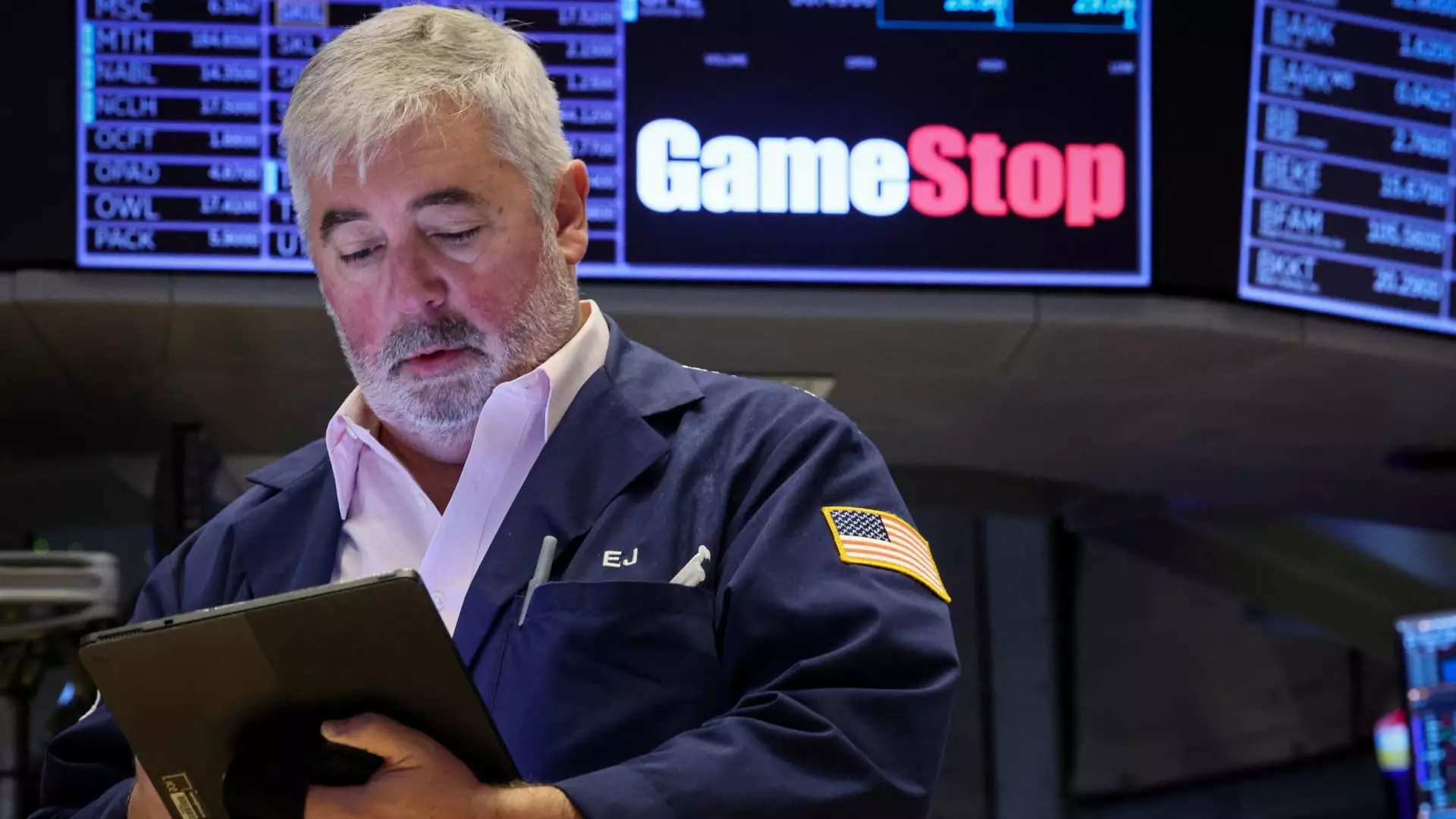GameStop, a name that rose from the ashes of traditional retail to become a symbol of meme stock culture, has just taken a turn that leaves many investors scratching their heads. After a brief rally that saw its stock price spike nearly 12%, the video game retailer plummeted by over 15% following the announcement of a staggering $1.3 billion debt issuance aimed at venturing into the world of Bitcoin. This move, reminiscent of the infamous MicroStrategy playbook, raises questions not only about GameStop’s strategic direction but also its understanding of market sentiments and investor psychology.
Trust Issues: The Diminishing Faith of Investors
At the core of GameStop’s recent strategy lies a critical dilemma: can investors trust that the company’s “meme magic” will endure? The prospectus detailing their intent to issue convertible senior notes due in 2030 is laden with implications. Analysts, including Wedbush’s Michael Pachter, express skepticism regarding the sustainability of GameStop’s current valuation, which hovers around $12.7 billion—over twice the anticipated cash reserves post-debt issuance. This valuation paradox is not only baffling but could also signal an impending reevaluation of investor sentiment.
Investors are being asked to invest in a high-flying narrative, banking on an ethos that champions Gamestop’s rise as emblematic of the “retail revolution.” However, the reality of a zero-coupon convertible note means that potential bondholders need to have an unwavering belief that the GameStop phenomenon will maintain its momentum over the next five years. For many, the thrill of being part of the meme stock frenzy may not outweigh the palpable risk of a harsh correction.
Bitcoin: A Risky Bet for a Gaming Company
GameStop’s foray into Bitcoin raises eyebrows primarily because it goes against the very grain of their core business—video games. While diversification can often be a marker of growth, venturing into an asset class as volatile as cryptocurrency might reflect desperation more than ambition. The timing seems particularly dubious, especially given that Bitcoin is already experiencing significant oscillations in value.
Drawing comparisons to MicroStrategy is a misstep; after all, MicroStrategy’s deep-rooted business model in tech and analytics provides a foundation for its Bitcoin investment that GameStop simply does not have. For GameStop, this may seem like a play to signal its transition into a more modern, tech-savvy future, but the underlying question remains: is this move prudent, or merely a reckless leap driven by a need to sustain an inflated valuation?
The Meme Stock Conundrum: Implications for the Future
The fallout from GameStop’s venture into cryptocurrencies could have implications that stretch far beyond its stock chart. Retail investors, many of whom saw GameStop as a symbol of rebellion against the establishment, may begin to waver in their faith if the company’s strategies seem out of touch with its core business ethos. Sustainable growth cannot simply be built on the echoes of internet memes and speculative bubbles. As the dust settles, it becomes increasingly clearer that GameStop needs to pivot towards a strategy rooted in solid fundamentals rather than following a trend that is as unpredictable as the cryptographic assets it now seeks to acquire.

Leave a Reply